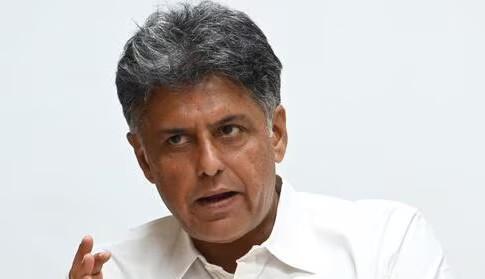
Title: Against Constitution: Tewari on bills to remove jailed PM, CMs
India is a democratic country, built on the foundations of a strong and well-structured Constitution. The Constitution, in its wisdom, has set out the framework for governance and has laid down the rules and procedures for the smooth functioning of the government. Recently, Union Minister Amit Shah presented three bills in Parliament, which, according to Congress MP Manish Tewari, are in direct violation of the basic structure of the Constitution.
The three bills, one for the removal of Prime Ministers, another for the removal of Chief Ministers, and a third for the removal of Ministers, are aimed at allowing the government to remove elected representatives facing serious criminal charges. While the intention behind these bills may be to cleanse the political system of corrupt and criminal elements, the potential for misuse of state instrumentalities is enormous, and Tewari has raised serious concerns about the constitutionality of these bills.
According to Tewari, the Indian Constitution is based on the principle of innocence until proven guilty. He emphasized that it is the responsibility of the judiciary to investigate and prove a person’s guilt, rather than the government acting unilaterally. By allowing the government to remove elected representatives based on mere allegations, Tewari believes that the bills are undermining the basic structure of the Constitution and the individual’s right to a fair trial.
Tewari’s concerns are not unfounded. The government, in its zeal to crack down on corruption and criminality, has often been criticized for its coercive and arbitrary actions. The bills, in their current form, provide a recipe for political opportunism and abuse of power. With the government having the power to remove elected representatives based on allegations, rather than evidence, there is a significant risk of political vendetta and retribution. This, in turn, could lead to a breakdown in the democratic system and undermine public trust in the institutions of governance.
Furthermore, Tewari points out that the bills do not provide adequate safeguards against political vendetta and misuse. There is no clear process or procedure outlined in the bills to ensure that the decisions are taken in a fair and transparent manner. This lack of transparency and accountability raises serious concerns about the bills’ potential to be used as a political tool to target opponents and silence critics.
The implications of these bills are far-reaching and have serious consequences for the democratic process. If passed, the bills would allow the government to unilaterally remove elected representatives, without any recourse to the judiciary or the legislative process. This would be a significant erosion of the checks and balances that are in place to ensure accountability and transparency in governance. The bills would also create a culture of fear and intimidation, where elected representatives would be hesitant to speak out against the government or take on issues that may be controversial.
In conclusion, Manish Tewari’s objections to the bills are well-founded. The bills, in their current form, are a threat to the basic structure of the Constitution and the democratic process. They provide a recipe for political opportunism, abuse of power, and political vendetta. Rather than passing these bills, the government should focus on strengthening the institutions of governance and ensuring that the political and legal processes are transparent, accountable, and fair.
News Source:
https://x.com/PTI_News/status/1958099763255201859






